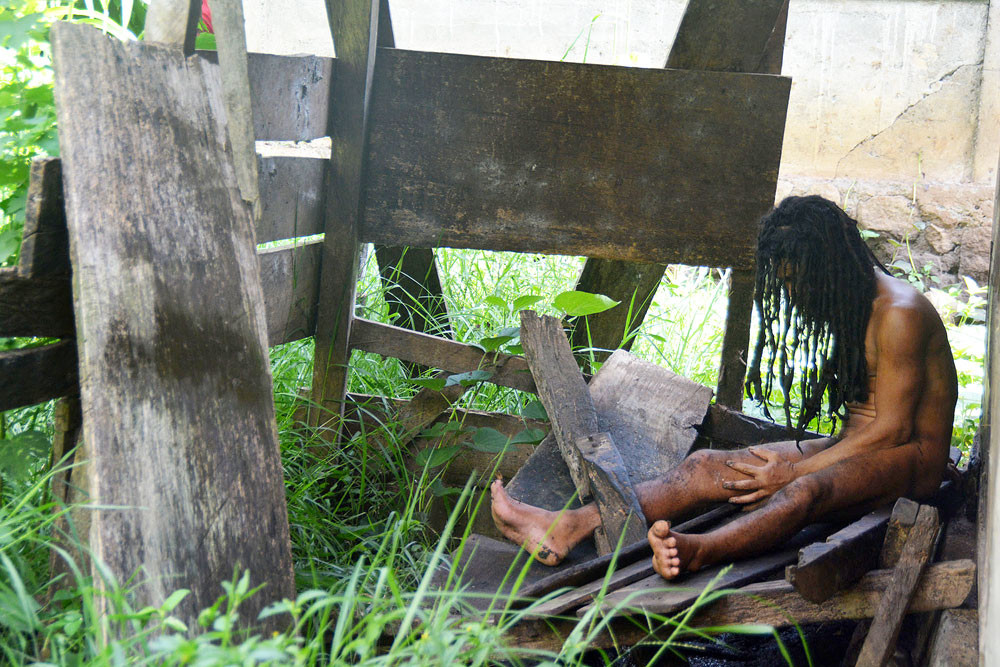Popular Reads
Top Results
Can't find what you're looking for?
View all search resultsPopular Reads
Top Results
Can't find what you're looking for?
View all search resultsFreedom from ‘pasung’
The government issued a new regulation in the lead-up to the country's 79th Independence Day that bans the inhumane practice of pasung, or shackling people with mental illness, but much more is needed in terms of technical regulations and a funding framework to expand both physical and human resources in ensuring nationwide access to mental health care.
Change text size
Gift Premium Articles
to Anyone
I
ndependence Day is an occasion for reflecting on the people's struggle to break free from colonial rule and claim sovereignty as a nation. This year’s commemoration on Aug. 17 was also special because the government instituted a nationwide ban on the practice of pasung, or shackling people with a mental illness.
In late July, the government issued Government Regulation (PP) No. 28/2024 as an implementing regulation of the 2023 Health Law. Among the provisions in the new regulation is a ban on pasung and violence against people with mental health issues.
Mental health experts rejoiced over the new policy, considering the bleak condition of the sector in Indonesia, which used to be one of 60 countries in the world that condoned the practice of shackling people with mental illness.
The Health Ministry’s recently released 2023 Indonesia Health Survey (SKI) found that 6 percent of households shackled their family member diagnosed with schizophrenia. Worse, one in four of those families had kept their relative with schizophrenia in shackles for a period of three months before the data was gathered.
The 2023 SKI also discovered that the majority of pasung cases occurred in low-income households in rural areas, which do not have access to mental health care. In such cases, the relative was placed in shackles in a cage or animal pen where they ate, slept and defecated, often together with other people with mental illness.
The conditions uncovered in last year’s survey increase the importance of the new regulation prohibiting pasung. But questions on the effective implementation and enforcement of the new policy still remain to be answered.
Under the new rule, authorities are responsible for freeing people with mental illness from shackles and ensuring they have access to mental health care, a safe place for recovery and a place to live, if they do not have one. But none of these are new, as health workers in many regions have been providing such services for years.
What the country needs to do to solve this issue is to expand the number of healthcare facilities that provide mental health services as well as the number of medical health providers.
Data from the Indonesian Psychiatric Association (PDSKJI) show that the country has only 1,120 psychiatrists, each handling 241,000 patients, compared to the ideal ratio of 1 psychiatrist per 30,000 people as recommended by the United Nations.
As if to add insult to injury, most psychiatrists are based in big cities on Java, meaning that people living in rural areas and outside Java lack access to mental health services.
The new regulation also details the responsibilities of central and regional administrations in helping to improve the sector, including policymaking, funding and accessibility to mental health services in all regions.
But the policy stops there. It does not provide any details on how to ensure the availability and even distribution of psychiatrists across the archipelago, for example. Nor does it offer a clear framework on how to fund efforts to provide nationwide access to mental health services.
The Health Ministry says more details are coming in successive ministerial regulations.
But haven’t we already waited too long for an action plan, while more people are lining up to obtain mental health treatment, free from the practice of pasung? And is there any guarantee that the incoming administration of president-elect Prabowo Subianto will work seriously to push for improvements in the country’s mental health care?
A concrete action plan is needed to help all people with mental health illness, including those in shackles, because it is not until then that all people will be wholly independent, both physically and spiritually.
After all, our founding fathers proclaimed independence to free all Indonesians from the shackles of poverty and inequality.











